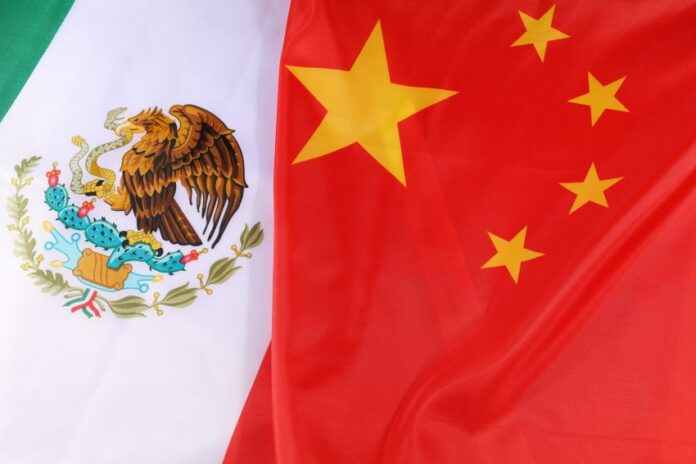Mexico has doubled its trade deficit with China over the past 10 years, hitting nearly US $120 billion last year.
The red numbers rose to a record $119.86 billion in 2024, according to national statistics agency INEGI, the result of US $9.94 billion in exports and a whopping US $129.795 billion in imports.
Slowing exports to China helped the deficit to balloon as the value of items shipped from Mexico to China declined for a second consecutive year.
Much of what Mexico imports from China are intermediate goods utilized by Mexican companies to produce final export goods. One example is copper, without which the Mexican auto industry would come to a standstill.
The inclusion of Chinese parts in products exported to the U.S. makes them incompatible with the existing U.S.-Mexico-Canada free trade agreement (USMCA), meaning they will be subject to 30% tariffs beginning Aug. 1.
Mexico’s reliance on Chinese goods is attributable to the global competitiveness of Chinese parts and components, as well as the low integration of some domestic production chains, for example, televisions and machinery.
WSJ: Sheinbaum administration wants US help to reduce Mexico’s imports from China
U.S. President Donald Trump’s determination to decouple trade with China (the U.S. deficit with China has fallen nearly 30%) will force Mexico to reconsider its own trade relationship with the world’s second-largest economy.
Since Trump’s first term, China’s trade with the U.S. has shrunk to one-third its value, hitting a 23-year low, according to Forbes magazine. In May, China accounted for just 5.89% of all U.S. trade, its lowest monthly percentage since 2002 and down from 17.77% in early 2017.
This dilemma is something Economy Minister Marcelo Ebrard has addressed previously.
The CEESP, an economic think tank, issued a report explaining how “dependence on Chinese inputs and weak domestic substitutes will limit [Mexico’s] technological development and reinforce a pattern of assembly rather than innovation.”
In November 2024, Ebrard floated the idea of a joint U.S.-Canada-Mexico project to increase manufacturing capacity in North America and reduce reliance on Chinese imports.
Other joint policy proposals included uniform tariffs on Chinese goods and new partnerships to integrate supply chains in key sectors.
With reports from El Economista and Forbes
